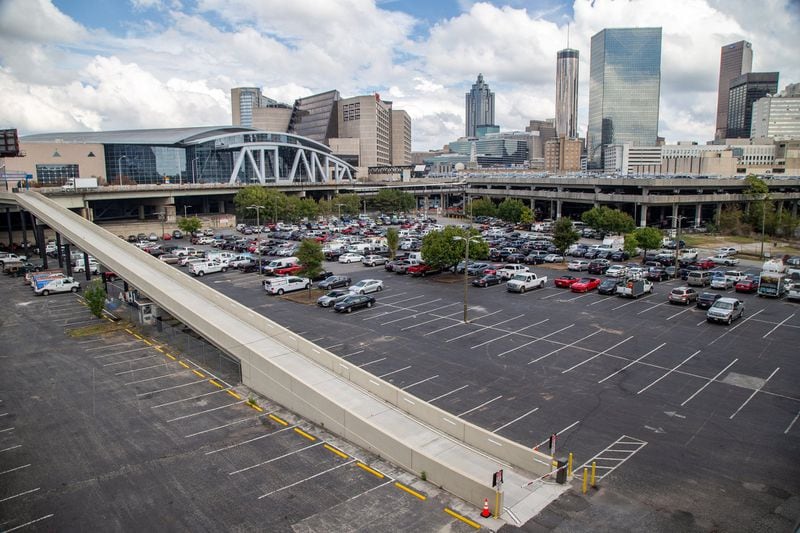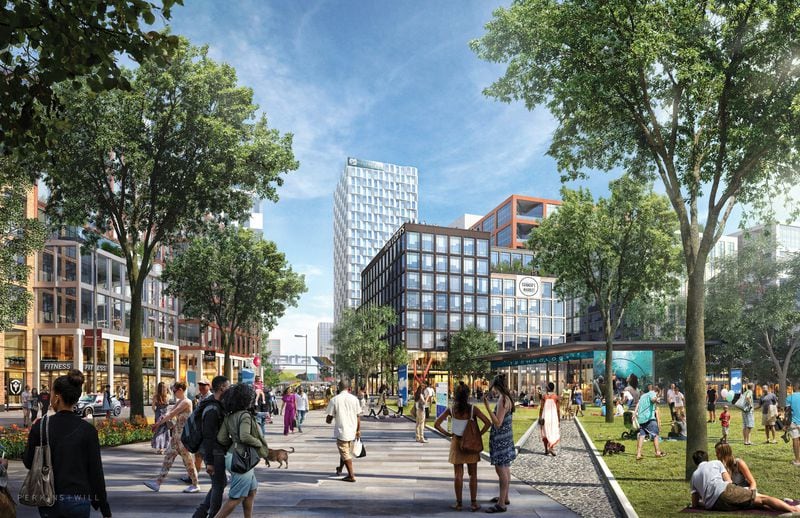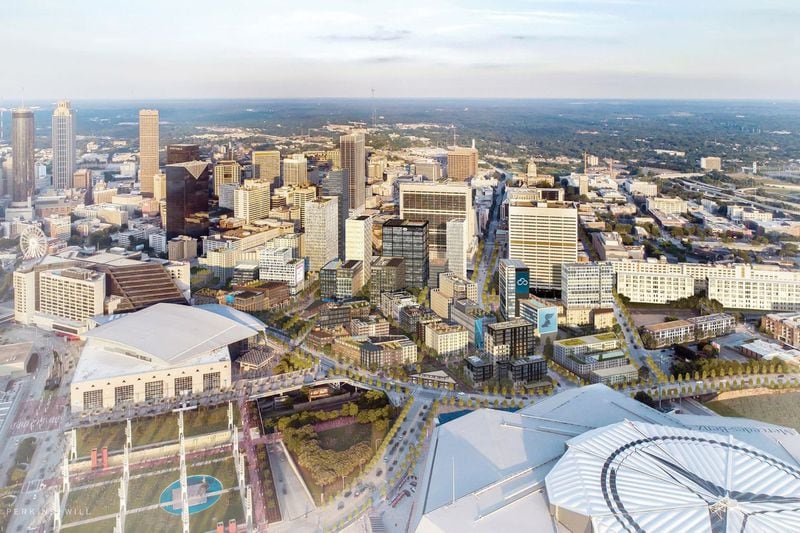Atlanta City Council members on Tuesday peppered the city’s negotiating team on the $5 billion Gulch development proposal, with a likely vote looming Monday that could reshape downtown.
During a marathon work session at City Hall, council members sought answers about the public commitment of up to $1.9 billion in bonds and reimbursements to the developer, and the strength of the strings attached to those dollars. Others wanted firmer commitments to affordable housing and hiring minority workers.
Atlanta Mayor Keisha Lance Bottoms three times has scheduled votes on the controversial proposal by California-based CIM Group, and three times she’s withdrawn for lack of council support or because the body signaled it wasn’t prepared to vote. It’s unclear if the deal yet has the eight needed council votes to win approval.
Bottoms and CIM were forced to rework an initial proposal after objections from the council and Atlanta Public Schools officials, and council members have spent the past week reviewing the new deal.
CIM has proposed a mix of office towers, apartments, hotels and retail spanning 40 acres between the Five Points MARTA station and Mercedes-Benz Stadium. The project will rely on a massive $500 million steel and concrete platform to span the rail lines and parking lots at ground level and raise the site about 40 feet to meet surrounding viaducts.
The new proposal calls for up to $1.25 billion in bonds, not including interest, to be repaid by a portion of future sales taxes created within the development through 2048. Up to $625 million, not including interest, would come from two decades of future property taxes created by the development itself.
CIM can use those dollars to reimburse itself for infrastructure and development costs.
“What happens if, God forbid, we have another Great Recession and the sales tax isn’t there and the property tax isn’t there?” asked Councilman J.P. Matzigkeit, during a marathon five-plus-hour council work session. “What is the city’s financial risk or obligation?”
Alvin Kendall, an outside lawyer negotiating the deal for the city, said CIM, not taxpayers, is on the hook for any bond debt. If the developer were to go under, CIM would likely sell its interests. The city could then find another developer, and rework incentives, to finish the project.
Gulch supporters have hailed the deal as one that will use future tax revenues created on site to transform a void in the city’s center into a vibrant mini-city. Critics say the proposal risks siphoning tax dollars from other areas of the city, and rewards a development team for benefits they say aren’t commensurate with the costs.
Deliberations have been dogged by what critics have described as efforts by Bottoms to ram through a deal.
Council President Felicia Moore said after two months of debate, the time has come for council to vote. She said Gulch negotiations have been weighted down by a lack of trust.
“When we don’t engage properly, trust wanes and people have issues of trust,” she said.
Moore then asked Invest Atlanta CEO Eloisa Klementich, city finance executives Ralph Dickerson and John Gaffney, and outside lawyers Doug Selby, Peter Andrews and Kendall if they would pledge to council that the information they provided “is true, correct and complete,” even if they could be held personally liable.
Each said yes.
Gulch backers have touted community benefits, such as a commitment to reserve the greater of 200 units, or 20 percent of the total built, as affordable. CIM also has promised $28 million for a citywide affordable housing trust fund, something the Bottoms administration has called "unprecedented."
Councilman Andre Dickens said he’d like to see more units at rents affordable for more people at lower income levels. He also raised concerns about a clause allowing CIM to sell the affordable units as price-controlled condos after three years of rental, or sell the units to the city to preserve them as subsidized rentals.
The city said that clause is there to ensure affordability whether the units are for sale or rent.
“The challenge with that is we subsidize the affordability on the front end and we’re going to buy it back from them at three years at market rate?” Dickens said. “That’s like them getting subsidized twice.”
Councilwoman Marci Collier Overstreet, who represents southwest Atlanta, said she was concerned that the promised 38 percent minority- and women-owned business participation commitment was a goal and not an iron-clad agreement.
Andrews said state law only allows the city to mandate best efforts. If CIM doesn’t go through processes designed to promote hiring or disadvantaged firms, they can have funding withheld.
“In real life, I’m not allowed to just put forth my best effort,” Overstreet said. “When my best effort doesn’t make the mark, it’s a problem.”
The story so far
- Previously: Mayor Keisha Lance Bottoms and developer CIM Group unveiled a new proposal earlier this month for an up to $1.9 billion public financing package to support a $5 billion project to build a mix of offices, apartments, hotels and retail in downtown Atlanta's Gulch.
- The latest: City Council members and the public wrestled with the new terms for the Gulch deal during a marathon five-and-a-half-hour work session.
- Next week: The council is heading for a deciding vote on the deal on Monday.
About the Author










